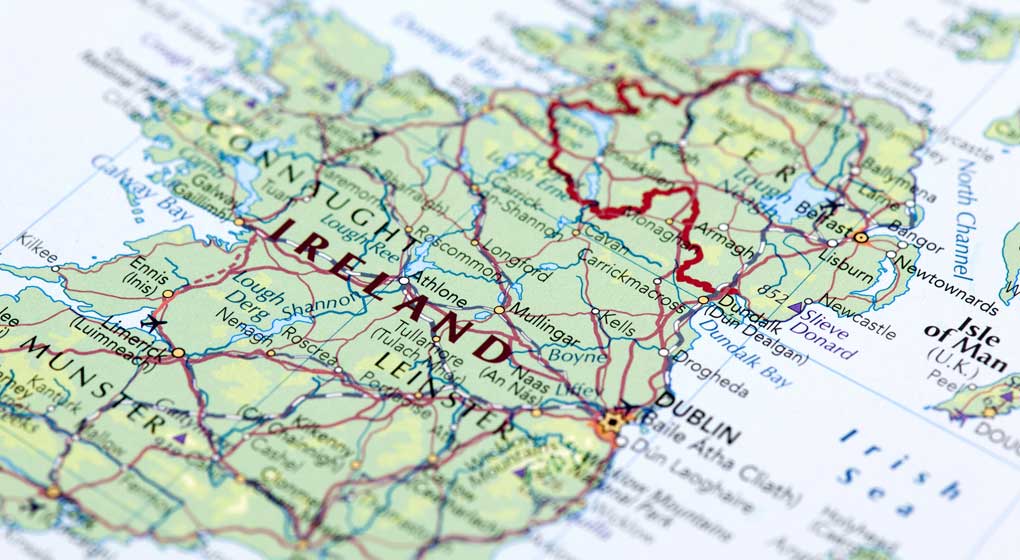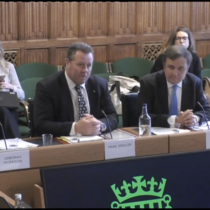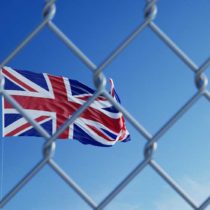The Irish Border – Implications for the meat industry
Arrangements surrounding the Irish border post-Brexit have the potential to drastically alter trading conditions for Irish food businesses. In the worst-case scenarios, the effects could be catastrophic, forcing some companies to completely re-think their supply chain as they deal with increased costs and reduced competitiveness.
BMPA Policy Advisor Peter Hardwick joined a panel discussion on BBC Radio Ulster’s ‘Inside Business’ programme earlier this week to discuss the implications of Brexit for Irish food businesses. You can listen to the recording here, but we’ve also highlighted some of the main points below.
Increased checks
The day we leave, the UK will need to be formally listed as a Third Country by the EU in order to trade with them. This trade will likely be tied to some form of dynamic regulatory alignment which means we may need to meet different food processing requirements and will definitely require new Export Health Certificates (not currently required) for all products of animal origin including live animals.
Whereas previously food products could move seamlessly and freely between countries, after Brexit any product or ingredient of animal origin will need a vet or environmental health officer to check and sign it off. This will be a huge additional bureaucratic burden.
If agreements are in place and we’re recognised as having a high health status then, in theory, the Export Health Certificate (EHC) text can be simplified to a limited extent. But this still doesn’t solve the looming problem of a chronic shortage of vets to carry out these checks.
Whereas previously food products could move seamlessly and freely between countries, after Brexit any product or ingredient of animal origin will need a vet or environmental health officer to check and sign it off.
To put this into context, the pressure will come from two angles. First: checks will have to happen on every product crossing the border that contains any ingredient of animal origin. This can be anything from a prepacked Caesar salad bowl to a frozen pizza to a chicken sandwich. Any vehicle crossing the border will need an EHC for each item. Not only that, it will need to contain an audit trail for all products of animal origin that went into each item. With time short, we are still some way off agreeing the exact procedures.
Second: we already have a capacity issue, with a current 10-12% shortage of vets in the country. After Brexit we simply won’t have enough people on the ground to carry out inspections and have little hope of finding enough additional vets and health officers to cope with the extra workload. There has been talk of creating a certification support officer role to assist existing vets but, while this might mitigate the problem somewhat, it certainly won’t solve it completely. The EHC still needs to be completed by a vet who has full oversight of processes.
Different regulatory requirements
Third Country listing will mean that in some cases, we won’t be able to continue to trade products that we currently trade. A good example of this is sausages and mince. As part of the EU we can trade fresh, chilled product. However, according to current Defra advice, as a Third Country those same products will be required to have been frozen to minus 18 degrees. This means that, overnight, some fresh products will not be able to cross borders.
As Peter Hardwick points out, it’s fair to say that getting certification for fresh sausages is probably not high up on the Government’s priority list in negotiations with the EU. Even if it were, the EU have made it clear that there will be no ‘cherry picking’ and that they’re not prepared to engage or negotiate on that prior to Brexit.
Tariffs
This is a simple and immediate effect of becoming a third country trading partner. Overnight, Northern Irish food businesses will become less competitive than their southern counterparts.
According to the latest Government advice, on day one of Brexit they do not intend to impose any tariffs, checks or controls on products moving from south to north. However, the day we become a third country, any products moving from north to south will have instant tariffs of between 15 and 150 percent imposed.
This leads to another issue that is of great concern for the wider industry.
The Irish ‘back door’
If Government relaxes the requirements, products moving from south to north will not require customs declarations if they don’t intend to ship to the UK mainland. This will be very hard to police, particularly if those products are processed in some way first. It could, for example, mean that the 230,000 tonne tariff quota for beef could be circumvented by trans-shipping via Northern Ireland and thus providing a route for Irish (and other third country) beef into the UK.
Part of the problem is that there’s no practical way of physically checking most consignments because Government has said that we’re not going to have inspection posts at the border. However, it’s not practical to divert consignments via existing inspection posts like Dublin, because current legislation requires that checks cannot be carried out too far away from the border.
To mitigate this, an all-Ireland food standards zone has been proposed which would start to solve the problem of tariffs, costs and regulations and maintain the seamless nature of the industry. However, it would move the issue of border control elsewhere in the UK.
Perhaps the ideal solution would be for the UK to maintain the same arrangements with the rest of the EU, although that seems increasingly less likely under the current UK leadership.
Panelists
Peter Hardwick, Trade Policy Adviser, British Meat Processors Association
Simon Doherty, President of the British Veterinary Association
John McCann, Chief Executive Officer, Willowbrook Foods
Michele Shirlow, Chief Executive Officer, Food NI






